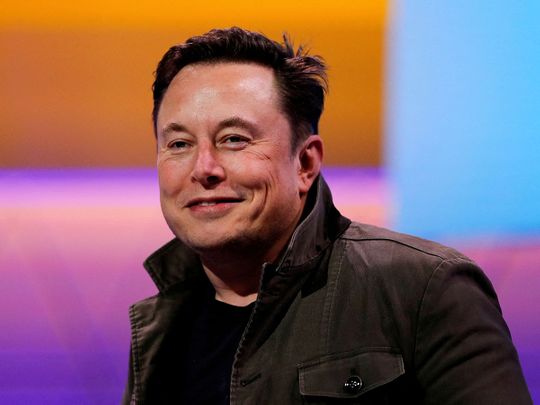
As acutely summarised by someone all too familiar with the consequences of speaking truth to power, Edward Snowden once said, "What disturbs me more is not the censorship itself, but how it shapes people's ideology. With dissenting information being eliminated, every website becomes a cult, where the government and leaders have to be worshipped."
Beyond individual censorship and character assassinations by the mainstream media (MSM), businesses attempting to re-establish free speech receive an equally warm welcome.
With platforms such as Gettr, Gab, Truth Social, Rumble and Parler emerging as first-generation antidotes to cancel culture by simply providing open and transparent platforms, you'll be hard-pushed to find a MSM outlet that hasn't described at least one of these platforms as ‘right-wing', ‘conservative’. Or in Arwa Mahdawi's scathing critique of Kanye West's purchase of Parler, ‘A social network for bigots?" and a ‘Nazified version of Myspace that nobody used an more’.

Hardly surprising then that when Elon Musk's highly publicised bid to buy Twitter for $44 billion went through late last month, the liberal establishment went into meltdown. As satirically described by Isaac Schorr in The National Review, ‘It was the darkest day on Earth since net-neutrality repeal’. Before citing CBS's Norah O'Donnell, who suggested that Musk might ‘make Twitter a haven for disinformation and hate speech’ while using the platform ‘to bully critics and bully reporters who have written about him or his companies’.
As an entrepreneur with a Midas touch, whose electric cars and satellite support of the Ukrainian military had positioned him as a darling of the left, it is all the more questionable that so many would object to someone who bought a global communication platform at a premium to deliver ‘a common digital town square, where a wide range of beliefs can be debated in a healthy manner, without resorting to violence’.
A Twitter reset
Highlighting the 'danger that social media will splitter into far-right wing and far left-wing echo chambers that generate more hate and divide our society in the relentless pursuit of clicks’, Musk wasted no time in conducting some immediate housekeeping, including the firing of chief executive Parag Agrawal, CFO Ned Segal and legal affairs and policy chief Vijaya Gadde, - the executive primarily seen as 'censor-in-chief' responsible for the removal of high-profile accounts, including former President Donald J. Trump.
Accused of misleading him and Twitter investors over the number of fake accounts on the social media platform, the senior executives are just the beginning of a wider cull as its new management streamlines operations, with the possibility of taking the company public at a future date.

With investors, including Binance founder and CEO Changpeng' CZ' Zhao, who commented, ‘I feel much more secure about my Twitter account now that Elon has sink'ed in there', referring to the owner's grand entrance, which involved carrying an actual sink, there is no doubt that for many, the ability to edit, and the removal of API, bot comments, and the freedom for information to flow has already been felt as a net positive.
As summarised by Piers Morgan, who incidentally enjoyed an organic lift in followers post-acquisition, "What you've seen with Twitter is a very woke workforce who had basically been shadow-banning conservative commentators from Twitter for a long time. We've all known this. They've also been almost exclusively banning people on the right without banning people on the left for similar offenses.
“But there again, [Elon Musk] is going to bring back comedy, the ability to have a laugh, to banter with people without fearing that you're going to get cancelled. And I really think this is long overdue."
Cancel culture goes rabid
Regardless of your position, many agree that such highly connected and influential platforms are too powerful for one company or individual to manage. In a digital age where most of our communication, connections, and engagement take place in the cloud, allowing either a private corporation or state the ability to "cancel" you is not only tyrannical but highly unethical.
It is for this reason that Web3 is the future.
Operating across independently run servers, companies such as Mastodon, which use open-source software, are harder to hack, making data theft considerably more difficult. And this is just the beginning.
If Web2 was all about gathering and concentrating information, Web3 is about taking back control from the current tech giants and decentralising it for the benefit and application of the people, and not for corporate profit.
Ultimately, Web3 provides a new format that doesn't steal data for advertising revenues. In addition to Mastodon, other Web3 platforms such as Karma, Signal, Aether and Minds illustrate that Web3 isn't limited to social but can apply to search, messaging, and phone, ushering in a new era of digital functionality and freedom.
Mind your data
No matter the platform, the Fourth Industrial Revolution is here to stay with data rising through the ranks as one of the world's most precious commodities. However, few seem to realise the risks associated with data storage, despite all the rhetoric.
As information from millions of social media accounts around the globe continues to be broadcast and processed on a daily basis, the volume of available data continues to grow exponentially, doubling every few years.
At our current rate, 2.5 quintillion bytes of data are generated per day, with over 90 per cent being created within the past decade.
“Due to the abundance of information that was once deemed irrelevant, the slow and silent application of companies to monetise big data, often without consent has been one of the largest ethically-questionable, economic game-changers in corporate history,” said Malte Christensen, CEO of DAO Labs.
“However, as decentralisation continues to gather momentum, users are increasingly aware they are capable of monetising their own data at their own discretion.”
Polygon, the company that pledged the largest Covid relief fund, and Avalanche, the founder of The Karma System (the forerunner of Bitcoin), have faith in the decentralisation of community service and reciprocal support.
As a result, both Polygon and Avalanche have taken an active stance by implementing community building technologies such as social mining to aid in the automation of community-building activities while allowing the community to retain control over these initiatives.
Take back control of data
These social mining centres pave the way for users to become their own data banks and distribution hubs, combining the relevant organic material of genuine users with corporations in a manner that is advantageous to both parties — similar to Tinder's matching algorithm, only for data.
Why would corporations like BMW spend money on paid ads and marketing when millions of BMW drivers post their own content for free? This, in turn, creates prospects for what we now call ‘21st-century jobs’, allowing further opportunity for remote work.
As aptly summarised by MIT Sloan Professor Sinan Aral, "social media is rewiring the central nervous system of humanity in real-time. We're now at a crossroads between its promise and its peril".
As the chickens come home to roost at some of the world's largest tech companies after years of political alignment, infringement of data protection, suppression of free speech and censorship, the self-evident requirement for decentralised platforms to provide open discussion, sincere communication and a return of individual sovereignty have never been so apparent.













